Danube Watch 3/2021 - The Ministers of the Danube
The Ministers of the Danube
One of the highlights of the Fourth Danube Ministerial Meeting saw Ministers and representatives giving statements on behalf of their countries, renewing commitments, and acknowledging progress in our shared river basin. The following texts are abridged extracts from longer statements given at the meeting by a variety of Ministers & Representatives from ICPDR Contracting Parties.
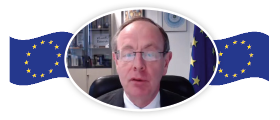
European Union - Mr. Patrick Child
Deputy Director-General in charge of Coordination of
Resourceefficiency policies and
instruments in DG Environment (ENV)
“We have a lot to celebrate today because, despite the known challenges, the Danube stands out as one of Europe’s best examples of successful transboundary cooperation. It’s taught us many lessons that we can apply in other contexts, and it gives me great hope for a better future. That said, the problems we’re facing are very real: we have droughts and floods brought by climate change, pollution from industry, pressures from infrastructure and hydropower, and other modifications to the river. Yet – the future is bright!”
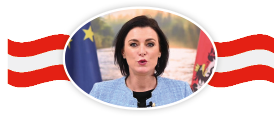
Austria - Ms. Elisabeth Köstinger
Minister for Agriculture, Regions, and Tourism
“20 years ago, 14 states and the European Union joined under this umbrella. They all committed to sustainability and serving the people of the region, and our vision remains fully dedicated to the needs of a joint approach to solving the transboundary and cross-sectorial challenges of the Danube and its tributaries. All of this has to keep in mind Climate Change.”
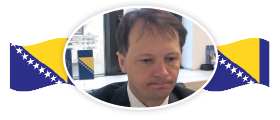
Bosnia-Herzegovina - Mr. Mirza Hujic
Assistant Minister of Foreign Trade and Economic Relations
“There is a long tradition of international cooperation in shared river basins. The existence and role of the ICPDR is of great importance for Bosnia-Herzegovina, taking into account that 76% of the total area of Bosnia-Herzegovina belongs to the catchment area. Governing this catchment area has a direct impact on the development of the fields of water supply and agriculture, industry, fishing, electricity generation, tourism, and water protection.”

Bulgaria - Mr. Borislav Sandov
Deputy Prime Minister & Minister of Environment and Waters
“I would like to focus on an overarching issue: climate change adaptation. Adaptation needs commitment, and the involvement of different governmental and non-governmental actors is essential to building resilience. I would like to emphasise that the vision has been drawn, the goals have been set, and the tools have been identified. Now it is time for action because the mission is possible.”

Croatia - Mr. Mario Siljeg
State Secretary in the Ministry of Economy and Sustainable Development
“What we consider particularly important is the Danube Flood Risk Management Plan. We witnessed severe consequences of the devastating floods in Europe last summer. For this reason, we welcome every measure. We are aware that complete flood protection is not possible, it is however certain that climate change contributes to the frequency and intensity of floods, thus this issue is becoming increasingly important to us, and must be high on the agenda.”

Czech Republic - Ms. Anna Hubáčková
Minister of Environment of the Czech Republic
“The Danube, and especially its tributaries, have always been near to my heart because I have spent most of my life on the banks of the Morava River – a major tributary on the Danube. Over the years I have seen both devastating floods and long periods of drought and water scarcity. But I have also seen pollution decrease and biodiversity thrive. It makes me very proud to see the ongoing cooperation of Danube countries to tackle these issues together.”

Germany - Dr. Bettina Hoffmann
Parliamentary State Secretary, Federal Ministry for the Environment, Nature Conservation, Nuclear Safety and Consumer Protection
“Solutions are only possible together, as rivers do not know borders. Nature-based solutions and restoration of ecosystems are important approaches, especially against the background of the UN Restoration Decade and CBD Kunming conference. We have come a long way, but our work is not finished. We must continue our efforts jointly to achieve our objectives and we will have to jointly address new challenges such as climate change.”
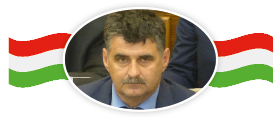
Hungary - Mr. Tibor Pogácsás
State Secretary of the Ministry of Interior
“The United Nations has chosen groundwater as the theme for World Water Day 2022 under the motto “Let’s Make the invisible, visible”. Hungary derives almost all of its drinking water supply from groundwater, so it is of utmost importance that we take the right measures to sustainably use our drinking water and groundwater resources, improve their quality, and thus protect them for future generations.”
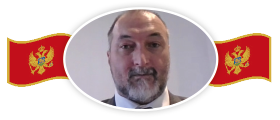
Montenegro - Mr. Aleksandar Stijović
Ministry of Agriculture, Forestry and
Water Management of Montenegro
“Based on climate projections and participation, it can generally be concluded that flood events are more frequent and more intense as a result of climate change. I believe our work will result in successful adaptation of the Declaration, which will be the basis for building the greater protection and health of people, environment, heritage, and economy.”
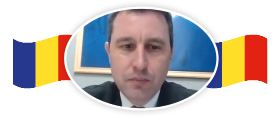
Romania - Mr. Barna Tánczos
Minister of Environment, Waters and Forests of Romania
“Despite important progress towards our objectives, we still have more to do together. In this respect, reduction of water pollution is the result of large investments into wastewater treatment, particularly from urban settlements. In our opinion, we have to increase our cooperation related to water environment, and concerning this issue I would like to highlight our efforts done for the protection and conservation of sturgeons, including their passage at the Iron Gates dam. For these fish however, there will be no future without the participation of upstream countries too.”

Serbia - Ms. Jelena Blagojević
State Secretary – Ministry of Agriculture, Forestry, and Water Management
“This process helped us gain insight into all that needs to be done, and has been the opportunity to examine EU directives in the Republic of Serbia. This will facilitate Serbian negotiations in connection with its accession to the European Union. Our country has fallen behind other Danube countries, since only slightly more than 10% of our citizens have access to wastewater treatment. Our priority is to construct wastewater treatment plants.”
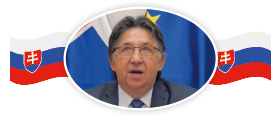
Slovakia - Mr. Ján Budaj
Minister of Environment
“Today we face the urgent challenge of linking water use with water protection. This is further complicated like other further challenges, namely adaptation to the adverse effects of climate change, protection of biodiversity, and the transition to a carbon neutral economy. Since the Autumn of 2020, more than 200 experts have participated in developing Slovakia’s water policy."

Slovenia - Mr. Luka Štravs
Leader, Water Management Division
“During the catastrophic floods in the Sava River Basin in 2014, we saw more than 100 casualties and enormous material damage. With the support and leverage of the international community along with local and regional development, conditions were soon restored. One of the most important achievements of the restoration process was the establishment of a contemporary Sava Flood Forecasting Warning System, which has already seen potential damage from floods reduced.”
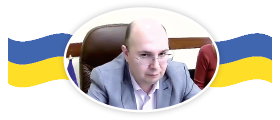
Ukraine - Mr. Mykhailo Khoriev
Deputy Minister Environmental Protection and Natural Resources of Ukraine
“Having recognised such issues as pollution by plastics and chemicals of emerging concerns, we would appreciate reinforcement of transboundary cooperation on these issues, as well as new basin-wide projects and initiatives. We appreciate all the efforts done by the ICPDR in the fields of cooperation, knowledge sharing, and public participation – and we reconfirm our commitment to implement the Danube Ministerial Declaration 2022 fully.”






